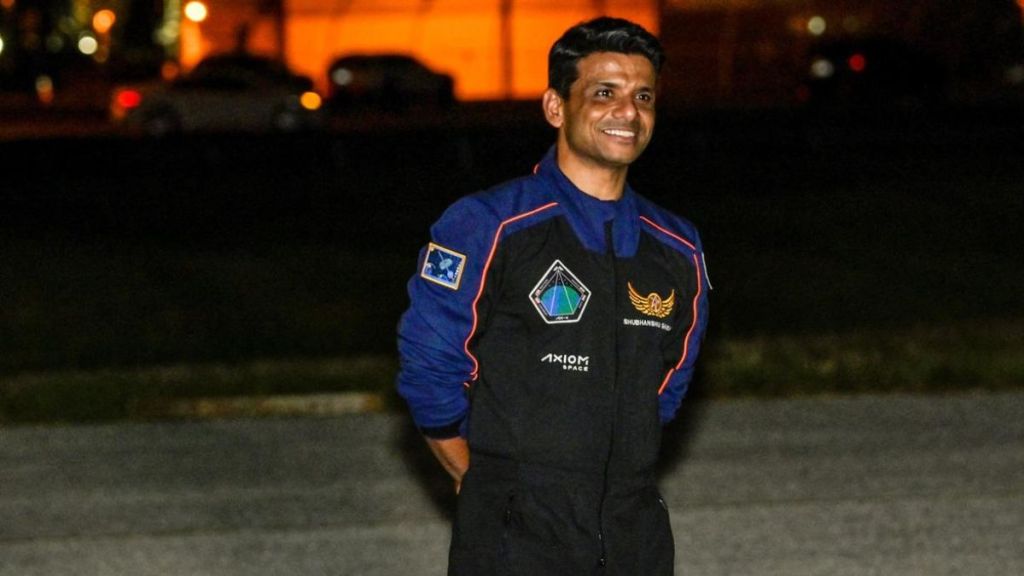Indian astronaut Shubhanshu Shukla made history this week by becoming the first Indian to reach the International Space Station (ISS) since Rakesh Sharma’s mission in 1984. He is part of the Axiom Mission 4, launched from Florida, along with three other astronauts. The mission will last for 14 days in space.
But while going to space is exciting, experts say coming back to Earth after even two weeks in space can be tough on the human body.
We spoke to doctors to understand what kind of health issues astronauts like Shukla may face after returning, and what steps are taken to help them recover.
What happens to astronauts after space travel?
According to Dr. Vipul Gupta, Director of Neurointerventional Surgery at Sir H.N. Reliance Foundation Hospital, Mumbai, space travel can lead to several short-term health problems. This is mainly because of microgravity—a condition where there is very little gravity, as in space.
“After 14 days in space, astronauts may feel weak, tired, dizzy, and may lose some muscle strength. Their bones may also become softer due to loss of bone density,” says Dr. Gupta.
Other common problems include:
- Joint stiffness
- Vision changes due to pressure inside the skull (called SANS – Spaceflight-Associated Neuro-ocular Syndrome)
- Low immunity, making them more prone to infections
- Fatigue and balance issues
That’s why astronauts are not allowed to meet people right away. They are kept under quarantine for a few days and are closely monitored by doctors.
Common health problems astronauts may face after returning to Earth
Dr. Chaitanya Kulkarni, Consultant in Internal Medicine at Kokilaben Dhirubhai Ambani Hospital, Navi Mumbai, says the body goes through a big adjustment when astronauts come back to Earth’s gravity.
“Astronauts often feel dizzy, may faint, or even see black spots due to a condition called orthostatic intolerance. This happens because their blood pressure and fluid levels drop,” explains Dr. Kulkarni.
Here are some of the other common health issues astronauts may experience after space missions:
- Muscle loss and weakness
- Bone thinning or softening (like osteoporosis)
- Problems with balance and walking
- Blurred vision or changes in eyesight
- Trouble sleeping or changes in mood
- Exposure to space radiation
- Mental stress from being in closed, isolated environments
Even though astronauts exercise in space, it’s not always enough to prevent these changes.
Recovery takes time and care
Coming back from space means the body needs time to adjust. Doctors say most astronauts start feeling better in 2 to 4 weeks after landing.
During this time, they go through:
- Physical therapy to rebuild muscle and improve movement
- Heart and blood pressure monitoring
- Eye and bone check-ups
- Mental health counselling
“Each astronaut is different, so their recovery plans are made specially for them,” says Dr. Gupta. “Some may take longer to get used to gravity again.”
They also go through regular check-ups to ensure there are no long-term issues.
Food and water are key to healing
Experts say eating the right kind of food is just as important as exercise after a space mission. Astronauts are put on a high-protein and calcium-rich diet to help build bones and muscles again.
They are also encouraged to drink plenty of water to help their blood flow and organs function well.
“Food plays a big role in healing. Astronauts are given special diets to help their bodies recover faster,” says Dr. Kulkarni.
Mental health support for astronauts after their landing
Living in a small space, far from family, and under pressure can affect a person’s mental well-being. That’s why astronauts also get help from psychologists after returning to Earth.
They may experience mood swings, sleep problems, or feel anxious. Counselling helps them feel better and get back to normal life.
For astronauts like Shubhanshu Shukla, landing back on Earth is just the beginning of another journey—recovery. Space travel, even for just 14 days, puts a lot of stress on the body and mind. But with the help of doctors astronauts are guided every step of the way to make a full recovery.








